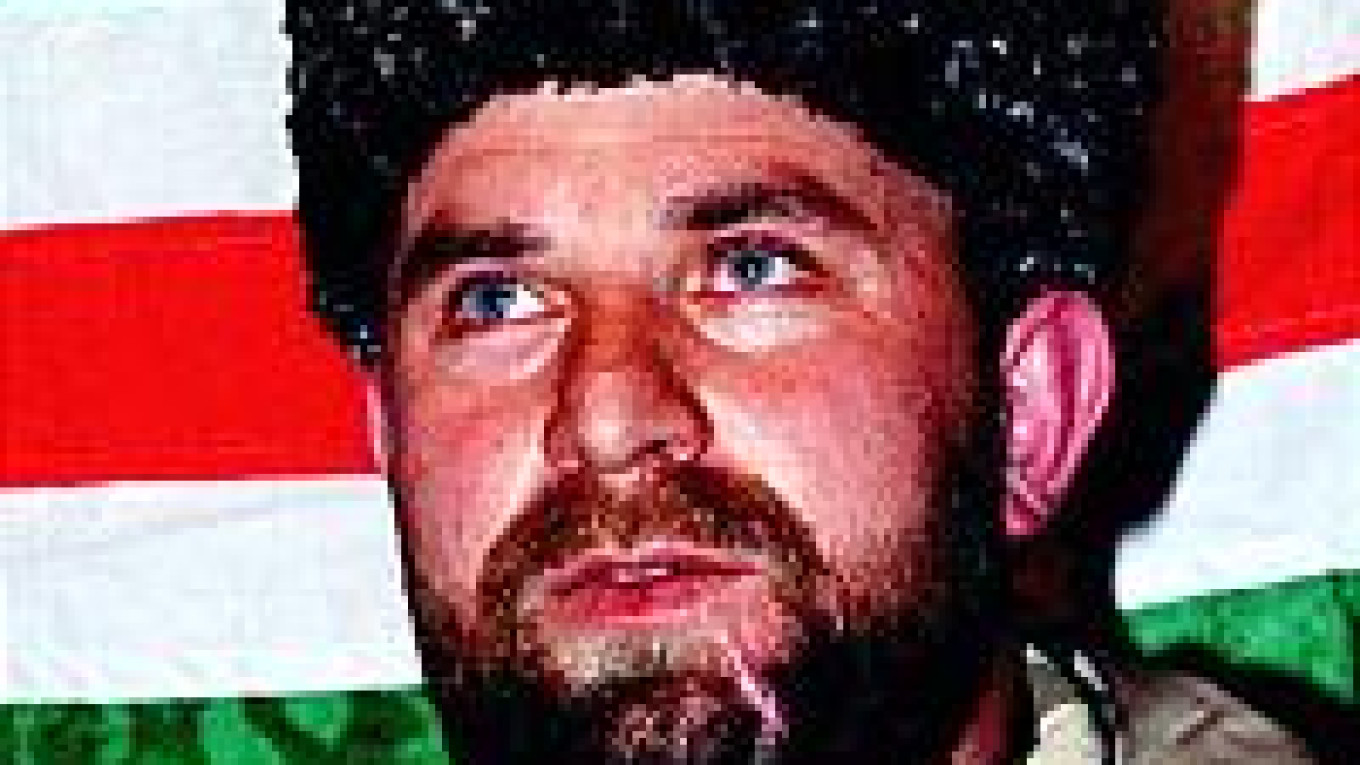Russian officials in the past repeatedly have reported Gelayev's death, and the latest claim could not immediately be confirmed.
The body of a man who appeared to be Gelayev was found Sunday, said Muslim Tsurmilov, a spokesman for the local branch of the Federal Border Guard Service.
A spokesman for the Federal Security Service's branch in southern Russia said forensic experts will examine the body to confirm its identity.
Vladimir Rudyak, an aide to Deputy Prosecutor General Sergei Fridinsky, said two captured rebels from Gelayev's group have identified the body as his.
Itar-Tass quoted unidentified officials in Dagestan as saying the man was wearing camouflage and had a submachine gun, a F-1 grenade and Wahhabi propaganda materials on him.
The last widespread report of Gelayev's death came after officials accused him of leading a band of rebels that killed nine border guards during a foray in Dagestan's mountains near the border with Chechnya in December.
The body believed to be Gelayev's was found near the bodies of two border guards outside the village of Bezhta, in the same region in southwestern Dagestan where the December foray took place.
Tsurmilov said the border guards apparently had died when they fell from a cliff while pursuing the rebels.
Gelayev, 39, won notoriety during the first war of the past decade between federal forces and separatist Chechen rebels, in 1994-96. He also played a prominent role in the second war, which began in September 1999, leading numerous raids and ambushes against the federal forces.
Details about Gelayev's past are sketchy.
He has three criminal convictions from Soviet times and once served as defense minister and deputy prime minister in the government of Chechen rebel leader Aslan Maskhadov.
Chechnya experts believe Gelayev has long been the most independent of all Chechen warlords, and that he has acted separately from Maskhadov and warlord Shamil Basayev.
A Message from The Moscow Times:
Dear readers,
We are facing unprecedented challenges. Russia's Prosecutor General's Office has designated The Moscow Times as an "undesirable" organization, criminalizing our work and putting our staff at risk of prosecution. This follows our earlier unjust labeling as a "foreign agent."
These actions are direct attempts to silence independent journalism in Russia. The authorities claim our work "discredits the decisions of the Russian leadership." We see things differently: we strive to provide accurate, unbiased reporting on Russia.
We, the journalists of The Moscow Times, refuse to be silenced. But to continue our work, we need your help.
Your support, no matter how small, makes a world of difference. If you can, please support us monthly starting from just $2. It's quick to set up, and every contribution makes a significant impact.
By supporting The Moscow Times, you're defending open, independent journalism in the face of repression. Thank you for standing with us.
Remind me later.


